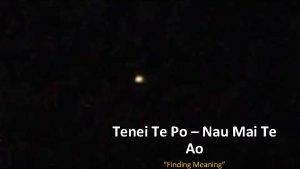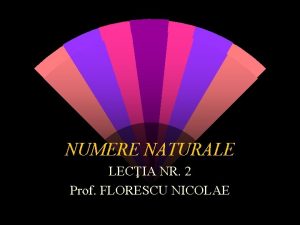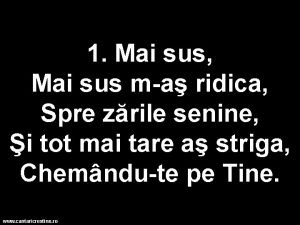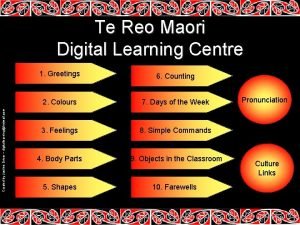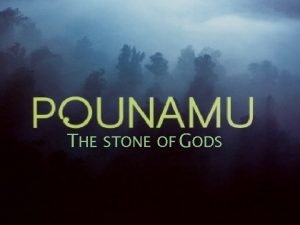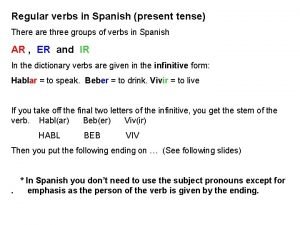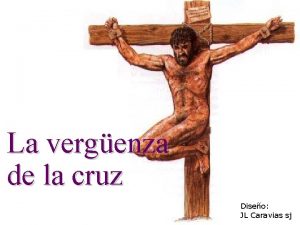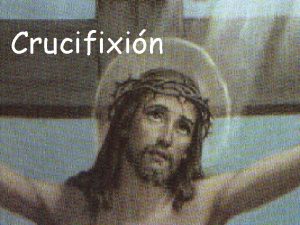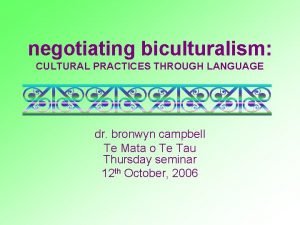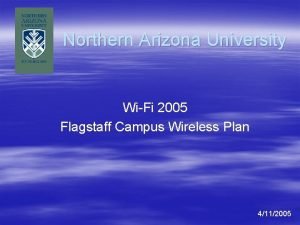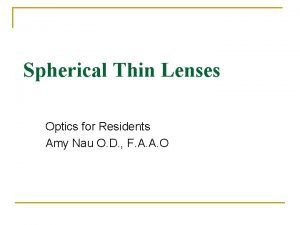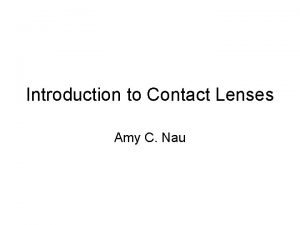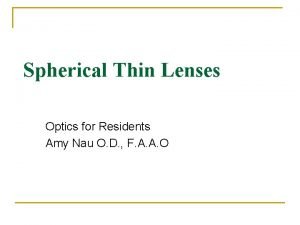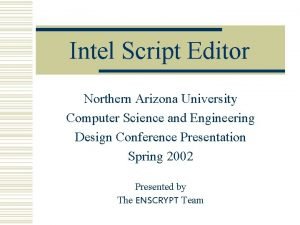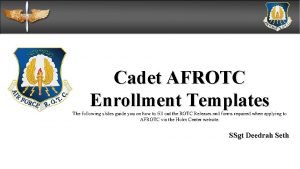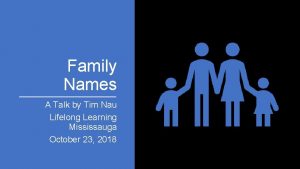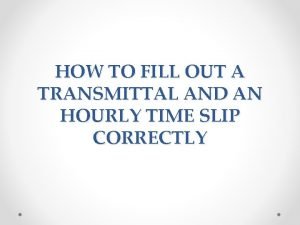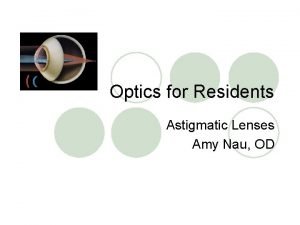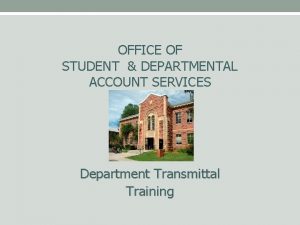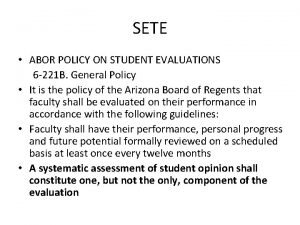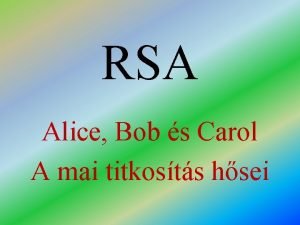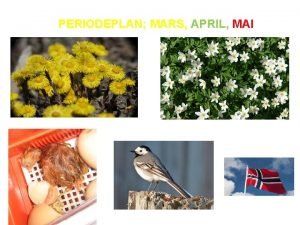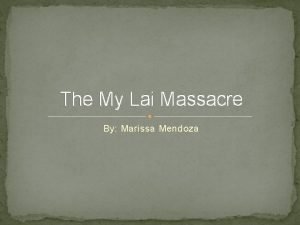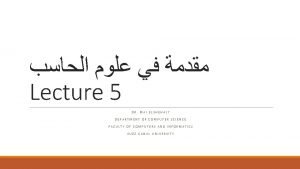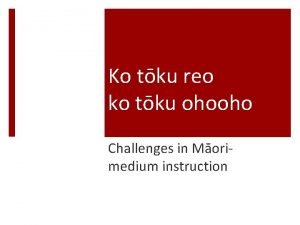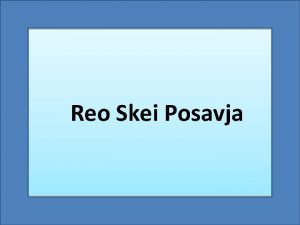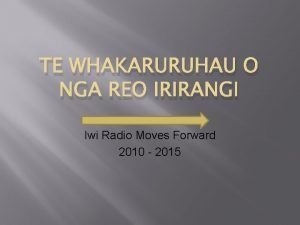Nau mai haere mai ki AKOHIA TE REO



















































- Slides: 51

Nau mai, haere mai ki AKOHIA TE REO Welcome to Akohia Te Reo

• • Karakia Hīmene Mihi Waiata Ngā Ture Whakawhanaungatanga Akoranga

Te Karakia O Te Atua (The Lord’s Prayer) E tō mātou Matua i te rangi Murua o mātou hara Kia tapu tou Ingoa Me mātou hoki e muru nei (Our Parent in the spirit world) (Sacred is your Name) Kia tae mai tou rangatira-tanga. (Bring us Your Chiefly rule); Kia meatia tau e pai ai (May it happen in the way that is to You, good) ki runga i te whenua, (may it happen on earth) kia rite ano ki to te rangi. (In the same way as in spirit world). Homai ki a mātou aianei (Give us now) he taro mā mātou mo tēnei ra. (The food we need this day). (Strip us of our sins); (Give us back what we have lost); i o te hunga e hara ana ki a mātou. (So that we, the slaves of sin, may be with you again). Aua hoki mātou e kawea kia whaka-waia; (Do not lead us into temptation); Engari whaka-orangia mātou, i te kino: (May we be whole, away from things evil); Nou hoki te rangatira-tanga, (Through your chiefly position, is) te kaha, me te kororia, (the power and the glory). Ake, ake. Āmine. (Forever and ever. Amen)

Ka waiata ki a Maria (Let us sing to Mary, ) Hine i whakaae (The girl who said "Yes) Whakameatia mai (let it be as you say, that I become) Te whare tangata. (the house of mankind. ") Hine pūrotu (A simple girl) Hine ngākau (A strong-hearted girl) Hine rangimārie (A quiet girl. ) Ko Te Whaea (The Mother of Jesus, ) Ko te whaea (and the mother) O te ao (of the whole world)

MIHI Tihei mauri ora, Tuatahi, Ki to tātou runga rawa Tēnā koe Firstly, to our higher power (whatever that maybe to you) we acknowledge you. Ki te whare e tū nei Me te papa ki waho rā Tēnā kōrua to the house that stands and the ground outside acknowledgements to you both. Ki te hunga mate Haere, haere atu ra to those past on farewell, farewell to you all Ki a tātou te hunga ora Tēnā koutou katoa Huri noa ki to tātou whare Tēnā koutou, tēnā tātou katoa. - WAIATA Āpiti hono, tātai hono Ko te hunga mate ki te hunga mate Āpiti hono, tātai hono Tātou, ko te hunga ora ki a tātou Tēnā koutou, tēna tātou katoa to us all, the living greetings to you all to every in our house Greetings, greetings to us all the lines are joined let the dead be dead the lines are joined us all, the living be with each other acknowledgement’s and greetings to us all.

Haruru ana te rongopai nei, (This gospel is continually reverberating) e horahia nei e te reo (as it is spread by word of mouth, ) Ki runga iwi o te motu nei. (across all the regional groups of the land. ) E kore e whakawai mai, (Do not be enticed) E whakararu i te tikanga (into changing its observance) Kei hurihia te ture wairua (Lest the spiritual law is overwhelmed) Ki te ture tangata (by the law of men) Whakatiahotia rā, (Let it be proclaimed) E te rōpū rangatahi e. (by the young people. ) Ko te kaupapa o te Māramatanga (The purpose of the Maramatanga movement) Kia rite ki nga ihi o te rā (is to make this as clear as the rays of the sun. ) No reira e nga iwi, kia tika te hoe mai (Therefore everybody let the paddling be correctly done) i te waka nei. Kei paringia e te tai, (in the canoe. Though steep are the waves) ka mōnenehu te kura. (merely misted are the red feathers. )

Ngā Ture Everyone has the right to express themselves We don’t whakaiti (belittle) anyone, no mocking Patience with ourselves and others

Whakawhanaungatanga • • • Who are you? Where are you from? Where do you live? What do you do for a living? Why do you want to learn te reo māori? What are you expectations? • • Ko _____ ahau Nō _____ Kei _____ e noho ana He _____ ahau/Kei te mahi au i _____

A basic structure of a mihi/whaikōrero • Taupara (ritual chant): a prayer or chant suitable to the purpose of the meeting to invoke god/gods’ protection and to honour the visitors. Or… Scripture, whakatauki or your identity. • Mihi ki te runga rawa: acknowledgements to the higher power. God, Gods, ranginui and papatūānuku, creator, gaurdians etc. • Māori king: if you are from Waikato you would acknowledge him, his whanau, wider whanau, the king line. • Mihi ki te whare tupuna/nui (acknowledgement of the ancestral house): pays tribute to the ancestoral meeting house. • Mihi ki a Papatūānuku (acknowledgement of Mother Earth): giving thanks for Mother Earth. • Mihi ki te hunga mate (acknowledgement of the dead): paying tribute to the dead who live on in the spirit realm/our tupuna/tīpuna.

• Mihi ki te hunga ora (acknowledgement of the living): acknowledge the living. Manuhiri/visitors, mana whenua/hau kainga/locals, minita/minister, elders, fellow students etc. Giving thanks for our continued existence. • Te take o te hui (purpose of the meeting): the purpose for which the groups have gathered. Waiata (song): an opportunity for the group to lend support to what has been said, usually appropriate for the occasion and relating to the purpose of the hui. The waiata also removes tapu (restrictions). • Mihi whakakapi: any last words to finish up on. Maybe last acknowledgements. Also separating of the realms (living and dead). Handing over of koha.

Protocols determining the order of speakers vary between iwi and hapū. There are two types of speaking order for the delivery of whaikōrero used by different tribes: tau-utuutu and pāeke. Tau-utuutu is when the speaking order alternates. It begins with a local speaker, followed by a visiting speaker, another local speaker and so on. The last speaker is from the tangata whenua. Pāeke, all but one of the host speakers speak first. Then the right of speech is handed to the visitors. A final speaker from the hosts completes the whaikōrero phase of the pōwhiri

Revise the Ā and Ō category and also the pronouns

Ā • • • Food and Drink Animals and Pets Spouse/ Children Grandchildren/ Nieces/Nephews Man made things (except clothing) Workers/ Inferior positions

Ō • • • Parents/siblings/ Names Transport Buildings Clothing Qualities/feelings/thoughts Parts of anything Drinking water/ Medicine Partner (not wife/husband) Shelter

Ā • Ko Takarahi tāku tama • Ko Tara tāku wahine • Anei tāku rorohiko • He pango tāku kuri • Homai koa tāku putea • He whero tāku pene rakau • Kua pakaru tāku peretī • He tino reka tāku āporo

Ō • Ko Beverley tōku Māmā • Ko Dani tōku hoa • Kei te pouri tōku ngākau • He mā tōku motokā • Kei te mahana tōku poraka • Horoia ōu ringa • Ko Whakarara tōku Maunga

Which catergory do I belong in? Māori • • • Pene Poti Hingareti Ngeru Rūma Pōtae Koroua Tuakana Hoiho Pākehā • • • Pen Boat Singlet Cat Room Hat Grandfather Older Sibling (Same gender) Horse

Which catergory do I belong in? Māori • • • Pene Poti Hingareti Ngeru Rūma Pōtae Koroua Tuakana Hoiho Pākehā Ā Ō Ō Ō Ō Ō • • • Pen Boat Singlet Cat Room Hat Grandfather Older Sibling (Same gender) Horse

Which catergory do I belong to? Māori Irāmutu Te. Rira Kūkama Rongoa Pukapuka Rare Whakaaro Rangatira Karu Pākehā • • • Niece/Nephew Name Cucumber Medicine Book Lollie Thought Chief Eye

Which catergory do I belong to? Māori Irāmutu Te. Rira Kūkama Rongoa Pukapuka Rare Whakaaro Rangatira Karu Pākehā Ā Ō Ā Ā Ō Ō Ō • • • Niece/Nephew Name Cucumber Medicine Book Lollie Thought Chief Eye

Te Reo Tip If you are finding the A / O difficult remember the A category and if it doesn’t fit into there……put it in the O Category.













Function of possessives With the pronouns we are going to, now use it in away where it shows who possesses something. To show who has control or possession over the object or person being spoken about. Example Ko tērā tā tātou kurī – that is our (everyone) dog Ko tērā tō tatou Rangatira – that/he or she is our (everyone) boss

Possessive tables Singular Plural Translation tāna tōna āna ōna His, hers tāku tōku āku ōku My, mine tāu tōu āu ōu yours tā tāua tō tāua ā tāua ō tāua Ours (yours and mine) tā māua tō māua ā māua ō māua Ours (his/her and mine) tā kōrua tō kōrua ā kōrua ō kōrua Yours (you two) tā rāua tō rāua ā rāua ō rāua Theirs (those 2) tā tātou tō tātou ā tātou ō tātou Ours (all of us) tā mātou tō mātou ā mātou ō mātou Ours (all of us but not you) tā koutou tō koutou ā koutou ō koutou Yours (you 3 or more) tā rātou tō rātou ā rātou ō rātou Theirs (those 3 or more)

Examples Kei te taraiwa ia i tōna waka Ko wai āu tēina? Kua pau ā tatou kai E hia ā koutou kuri? E haere mai ana ā māua hoa I mate tō rāua koroua Kei te ora tonu ōu mātua? Kei te pēhea ā kōrua tamariki?

Examples Kei te taraiwa ia i tōna waka Ko wai āu tēina? Kua pau ā tatou kai E hia ā koutou kuri? E haere mai ana ā māua hoa I mate tō rāua koroua Kei te ora tonu ōu mātua? Kei te pēhea ā kōrua tamariki? He/she is driving her/his car Who are younger siblings (same sex)? Our(all of us) food has been consumed/eaten How many dogs do you(3 or more) have? Our(his/her and mine) friends are coming. Their(those 2) grandfather is dead. Are your parents still alive? How are your(you two) children?

The most common way to show possession is by starting the sentence with the kupu ”HE” then using one of the possessive from the table. He pēpi tā rāua? He pēpi ā rāua? He whare hou tō koutou? He whare hou ō koutou? He pene tā Hone? He pene ā Hone? He tūru tā tōku pāpā? He tūru ā tōku pāpā? Have they (2) got a baby? Have they (2) got any babies? Have you (3+) got a new house? Have you (3+) got new houses? Has Hone got a pen? Has Hone got (some) pens? Has my dad got a chair? Has my dad got (some) chairs?

Sentence starter Noun/Object Possessive He pēpi tā rāua baby They (2) They(2) have got a baby Sentence starter Noun/Object Possessive He pēpi ā rāua babies They (2) They(2) have got (some) babies Sentence starter Noun/Object Possessive He tūru tā tōku pāpā chair my dad. My dad has got a chair Sentence starter Noun/Object Possessive He tūru ā tōku pāpā chairs my dad My dad has got (some) chairs

The most common way to show possession is by starting the sentence with the kupu ”HE” then using one of the possessive from the table. He pēpi tā rāua? He pēpi ā rāua? He whare hou tō koutou? He whare hou ō koutou? He pene tā Hone? He pene ā Hone? He tūru tā tōku pāpā? He tūru ā tōku pāpā?

The most common way to show possession is by starting the sentence with the kupu ”HE” then using one of the possessive from the table. He pēpi tā rāua? He pēpi ā rāua? He whare hou tō koutou? He whare hou ō koutou? He pene tā Hone? He pene ā Hone? He tūru tā tōku pāpā? He tūru ā tōku pāpā? Have they (2) got a baby?

The most common way to show possession is by starting the sentence with the kupu ”HE” then using one of the possessive from the table. He pēpi tā rāua? He pēpi ā rāua? He whare hou tō koutou? He whare hou ō koutou? He pene tā Hone? He pene ā Hone? He tūru tā tōku pāpā? He tūru ā tōku pāpā? Have they (2) got a baby? Have they (2) got any babies?

The most common way to show possession is by starting the sentence with the kupu ”HE” then using one of the possessive from the table. He pēpi tā rāua? He pēpi ā rāua? He whare hou tō koutou? He whare hou ō koutou? He pene tā Hone? He pene ā Hone? He tūru tā tōku pāpā? He tūru ā tōku pāpā? Have they (2) got a baby? Have they (2) got any babies? Have you (3+) got a new house?

The most common way to show possession is by starting the sentence with the kupu ”HE” then using one of the possessive from the table. He pēpi tā rāua? He pēpi ā rāua? He whare hou tō koutou? He whare hou ō koutou? He pene tā Hone? He pene ā Hone? He tūru tā tōku pāpā? He tūru ā tōku pāpā? Have they (2) got a baby? Have they (2) got any babies? Have you (3+) got a new house? Have you (3+) got new houses?

The most common way to show possession is by starting the sentence with the kupu ”HE” then using one of the possessive from the table. He pēpi tā rāua? He pēpi ā rāua? He whare hou tō koutou? He whare hou ō koutou? He pene tā Hone? He pene ā Hone? He tūru tā tōku pāpā? He tūru ā tōku pāpā? Have they (2) got a baby? Have they (2) got any babies? Have you (3+) got a new house? Have you (3+) got new houses? Has Hone got a pen?

The most common way to show possession is by starting the sentence with the kupu ”HE” then using one of the possessive from the table. He pēpi tā rāua? He pēpi ā rāua? He whare hou tō koutou? He whare hou ō koutou? He pene tā Hone? He pene ā Hone? He tūru tā tōku pāpā? He tūru ā tōku pāpā? Have they (2) got a baby? Have they (2) got any babies? Have you (3+) got a new house? Have you (3+) got new houses? Has Hone got a pen? Has Hone got (some) pens?

The most common way to show possession is by starting the sentence with the kupu ”HE” then using one of the possessive from the table. He pēpi tā rāua? He pēpi ā rāua? He whare hou tō koutou? He whare hou ō koutou? He pene tā Hone? He pene ā Hone? He tūru tā tōku pāpā? He tūru ā tōku pāpā? Have they (2) got a baby? Have they (2) got any babies? Have you (3+) got a new house? Have you (3+) got new houses? Has Hone got a pen? Has Hone got (some) pens? Has my dad got a chair?

The most common way to show possession is by starting the sentence with the kupu ”HE” then using one of the possessive from the table. He pēpi tā rāua? He pēpi ā rāua? He whare hou tō koutou? He whare hou ō koutou? He pene tā Hone? He pene ā Hone? He tūru tā tōku pāpā? He tūru ā tōku pāpā? Have they (2) got a baby? Have they (2) got any babies? Have you (3+) got a new house? Have you (3+) got new houses? Has Hone got a pen? Has Hone got (some) pens? Has my dad got a chair? Has my dad got (some) chairs?

Mahi kainga I have a hat He rari āu? They (3+) have a car? He naihe ā rātou. We(3+ not including speaker) have a table. He waka ōna. Have you got a tv? He hū āu?

Karakaia whakamutunga (Finishing prayer) Unuhia, unuhia (Draw on, draw on, ) Unuhia ki te uru tapu nui (Draw on the supreme sacredness) Kia wātea, kia māmā, te ngākau, te tinana, te wairua i te ara takatā (To clear, to free the heart, the body and the spirit of mankind) Koia rā e Rongo, whakairia ake ki runga (Rongo, suspended high above us) Kia tina! TINA! Hui e! TĀIKI E! (Draw together! Affirm!)

 Reo
Reo Akohia te reo
Akohia te reo Nau mai ki makara
Nau mai ki makara Scrieti in ordine crescatoare nr naturale mai mici decat 12
Scrieti in ordine crescatoare nr naturale mai mici decat 12 Mai sus mai sus m-as ridica
Mai sus mai sus m-as ridica Justine driver
Justine driver Karakia for pounamu taonga
Karakia for pounamu taonga Hud reo
Hud reo Ngài đến lòng chúng nhân reo hò vui mừng
Ngài đến lòng chúng nhân reo hò vui mừng Spanish regular verb conjugation
Spanish regular verb conjugation Reverse mortgage solutions reo properties
Reverse mortgage solutions reo properties Reo technology
Reo technology Vergenza
Vergenza Leño horizontal que el reo tenía que cargar
Leño horizontal que el reo tenía que cargar Rumaki reo meaning
Rumaki reo meaning Graduate college nau
Graduate college nau Riles building nau
Riles building nau Thin lens vergence equation
Thin lens vergence equation Iso-accommodative magnification
Iso-accommodative magnification Nau textbooks
Nau textbooks Peoplesoft nau
Peoplesoft nau Michelle retke
Michelle retke Microsoft office nau
Microsoft office nau Nau graduate assistantships
Nau graduate assistantships Amy nau
Amy nau Power of lens
Power of lens Nau computer science
Nau computer science Nau cayuse
Nau cayuse Nau remote desktop
Nau remote desktop Afrotc form 68
Afrotc form 68 Jacks planner nau
Jacks planner nau Tim nau
Tim nau Nau bblearn login
Nau bblearn login Cscc to osu
Cscc to osu Solidança la nau
Solidança la nau Nau course evals
Nau course evals Toothless hockey
Toothless hockey Learning english speaking
Learning english speaking Tom acker nau
Tom acker nau Nau reverse transfer program
Nau reverse transfer program Nau optics
Nau optics Bio 344 nau
Bio 344 nau Peoplesoft financials nau
Peoplesoft financials nau Nau student and departmental account services
Nau student and departmental account services Nau course evaluations
Nau course evaluations Alice mai
Alice mai Comunicarea paraverbala
Comunicarea paraverbala Mai. vin
Mai. vin Vårmåneder
Vårmåneder Vietnam war massacre
Vietnam war massacre Test structura calculatorului
Test structura calculatorului Mai elshehaly
Mai elshehaly


